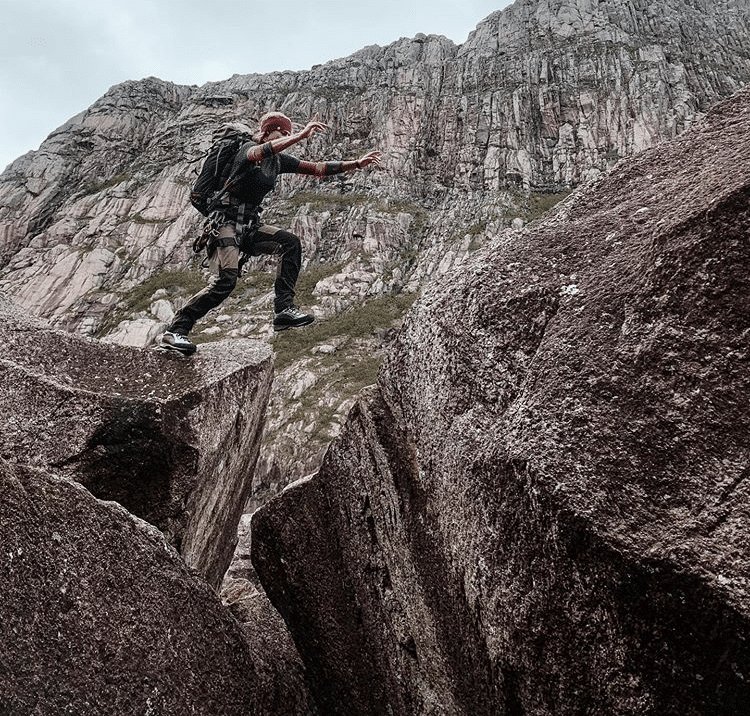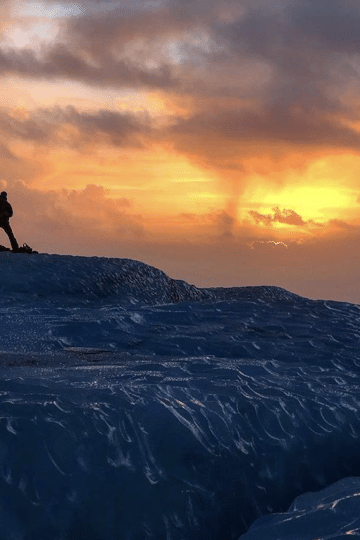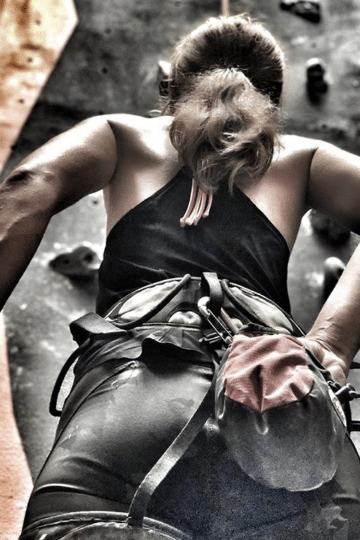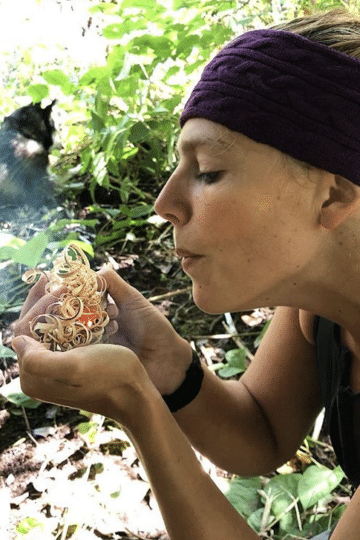‘Deprogramming’ by Megan Hine
Megan Hine
This week, Megan writes about a disturbing experience with a stalker which illustrates why we should trust our intuition and put our social programming to one side.
The stairs creak. Adrenaline bursts through my body, senses immediately heightened. Blood pounds in my ears threatening to deafen me. Palms sweaty, hands shaking, I reach for the machete at the side of the bed. Waiting, listening for another creak of the stairs. Nothing.
Slowly, machete in hand, I slip quietly from under the covers, pull the bedroom door quietly open and reach for the light switch at the top of the stairs. Muscles coiled ready to strike, I flick the light and adopt a fighting stance. The stairwell is empty. A flush of relief and emotion courses through my tense body and I feel the tension release. Still hyper aware I slowly descend the stairs and into the tiny living room and onwards into the kitchen and bathroom putting into practice room clearance drills from the dynamic firearms courses I take. Checking the locks, the windows. All clear. I return to bed, yet another sleepless night on high alert. The creaking was the sound of the tiny old Alpine chalet I rented settling in the freezing weather.
A year previously I had been freelancing for a bushcraft company, travelling from my home in the Alps to run bushcraft courses in the UK. There had been a client on a couple of the courses who when I first met them made the hairs on the back of my neck stand on end, and I subconsciously found myself ensuring I was never alone with him. I was always taught as a child to ‘treat others how I wish to be treated’, to give others ‘the benefit of the doubt’ and above all ‘always be polite’. This training, or programming if you like, prevented me morally from staying away and I shut down what I saw as negative feelings towards this guy and went out of my way to interact with him and include him in the group I was instructing. In hindsight I realise that others must have felt the same, as he was kept on the edge of the group. A short while after these courses, I received an email from him enquiring about private guiding. Not an unusual request. I set him up a bespoke course and maintained standard client guide communication for several months. Out of nowhere, one weekend after having sent him a message of receipt of his payment I received a long email from him that was highly abusive – I actually can’t put into words on here as it makes me feel sick at how disgusting and racist it was. I replied with an email that I tolerate zero forms of abuse and returned his money to him. This was my last communication with him from my side.
For months after I was hounded by calls, and hundreds of emails which became ever more sexually explicit, or saying he was outside watching me. Each time I blocked a number or an IPN address he would find a way round it. I eventually ended up getting the police involved and they couldn’t find him for quite a while. As both my parents’ address as my UK office and my French address were online an immediate call out was placed on my parents’ phone in case they needed to dial the police. The French police had a similar method for me. Work commitments took me overseas a lot of the year, and it was a relief to get away as when I was home I couldn’t sleep. Any small noise in the house would bring me to full wakefulness ready to fight. This went on for over a year.
When I meet clients participating on an expedition, the first time I usually meet them is at the airport in the country where we’re about to start their adventure. My first impressions of them happen almost subconsciously and I listen to them, as they are usually pretty spot on. My senses take in the full picture, from what they are wearing and how used their clothing and equipment is, to how they move and how they interact with me and other group members. My mind creates a feeling or picture of them related to previous experiences, and places them on a scale of risk and awareness. In remote areas where help can be more than 24 hours away it is key, as leader, that I can manage any situation that arises and maintain control over it. Human error is a huge factor in accidents on an expedition. The quicker I figure who may cause problems or may struggle, or those that I could rely on to help in an emergency, the clearer the picture. The clearer the picture the more effectively I can put a plan into place to minimise the effect or prevent an issue becoming a problem. Prevention is always better than cure. I am able to do this on expedition but it wasn’t until my stalker experience that I started listening to it on any interaction which caused me to be uncomfortable. It doesn’t mean I am rude to the individual but it allows me to put boundaries into place which prevent a situation being able to escalate or for them to manipulate my emotions.
If first impressions are so key, maybe we should learn to listen more to them and should question the ‘programmes’ we teach our children. Our subconscious minds are so clever and so in tune with the environment around us. Our conscious minds don’t always seem to be so clever and so often rational thought or pre-programmed thoughts and behaviours often take over. Such things are powerful tools for the right scenario but when our physical or emotional well being is on the line or we are ignoring warning signs, maybe our default programmes are due an upgrade.


Read Megan First
Sign up to our daily newsletters to read Meg's work before anyone else, and for the best of The Book of Man
Trending

Join The Book of Man
Sign up to our daily newsletters to join the frontline of the revolution in masculinity.
















